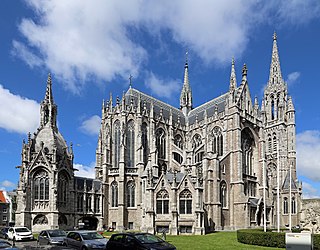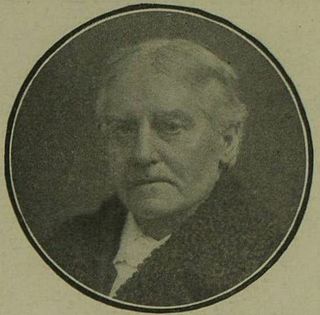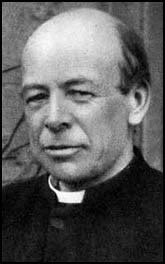| Named after | Matthew the Apostle |
|---|---|
| Formation | 29 June 1877 |
| Founder | Stewart Headlam |
| Founded at | Bethnal Green, England |
| Dissolved | 1909 |
Warden | Stewart Headlam |
The Guild of St Matthew was an English high-church Christian socialist association led by Stewart Headlam from its establishment in Bethnal Green on 29 June 1877 when Headlam was Curate at St Matthew's to its dissolution in 1909. [1] While the guild never had a membership of more than about 400 people, it was "the pioneer Christian socialist society of the revival period in Britain", breaking the ground for other Christian socialist organisations yet to come, such as the Christian Social Union. [2] Kenneth Leech described it as "the first explicitly socialist group in Britain". [3] For many years, it published the periodical The Church Reformer.

William Morris was a British textile designer, poet, novelist, translator and socialist activist associated with the British Arts and Crafts Movement. He was a major contributor to the revival of traditional British textile arts and methods of production. His literary contributions helped to establish the modern fantasy genre, while he helped win acceptance of socialism in fin de siècle Great Britain.
The Great Awakening refers to a number of periods of religious revival in American Christian history. Historians and theologians identify three, or sometimes four, waves of increased religious enthusiasm between the early 18th century and the late 20th century. Each of these "Great Awakenings" was characterized by widespread revivals led by evangelical Protestant ministers, a sharp increase of interest in religion, a profound sense of conviction and redemption on the part of those affected, an increase in evangelical church membership, and the formation of new religious movements and denominations.

Anglo-Catholicism, Anglican Catholicism, or Catholic Anglicanism comprises people, beliefs and practices within Anglicanism that emphasise the Catholic heritage and identity of the various Anglican churches.
The Christian Social Union (CSU) was an organisation associated with the Church of England, with some similar features to the Social Gospel movement of North America. The group was established in 1889 and dedicated itself to the study of contemporary social conditions and the remedying of poverty and other forms of social injustice through public mobilisation to alleviate the same. The organisation was terminated by merger in 1919, becoming part of the Industrial Christian Fellowship (ICF).

Gothic Revival is an architectural movement that began in the late 1740s in England. Its momentum grew in the early 19th century, when increasingly serious and learned admirers of neo-Gothic styles sought to revive medieval Gothic architecture, in contrast to the neoclassical styles prevalent at the time. Gothic Revival draws features from the original Gothic style, including decorative patterns, finials, lancet windows, hood moulds and label stops. By the mid-19th century, it was established as the preeminent architectural style in the Western world.
Christian socialism is a religious and political philosophy that blends Christianity and socialism, endorsing left-wing politics and socialist economics on the basis of the Bible and the teachings of Jesus of Nazareth. Many Christian socialists believe capitalism to be idolatrous and rooted in the sin of greed. Christian socialists identify the cause of social inequality to be the greed that they associate with capitalism. Christian socialism became a major movement in the United Kingdom beginning in the 19th century. The Christian Socialist Movement, known as Christians on the Left since 2013, is one formal group.

Stewart Duckworth Headlam (1847–1924) was an English Anglican priest who was involved in frequent controversy in the final decades of the nineteenth century. Headlam was a pioneer and publicist of Christian socialism, on which he wrote a pamphlet for the Fabian Society, and a supporter of Georgism. He is noted for his role as the founder and warden of the Guild of St Matthew and for helping to bail Oscar Wilde from prison at the time of his trials.
Maurice Benington Reckitt (1888–1980) was a leading English Anglo-Catholic and Christian socialist writer. He edited Christendom: A Journal of Christian Sociology from 1931 to 1950. He founded the charity Christendom Trust.

The Public Worship Regulation Act 1874 was an Act of British Parliament, introduced as a Private Member's Bill by Archbishop of Canterbury Archibald Campbell Tait, to limit what he perceived as the growing ritualism of Anglo-Catholicism and the Oxford Movement within the Church of England. The bill was strongly endorsed by Prime Minister Benjamin Disraeli, and vigorously opposed by Liberal party leader William Ewart Gladstone. Queen Victoria strongly supported it. The law was seldom enforced, but at least five clergymen were imprisoned by judges for contempt of court, which greatly embarrassed the Church of England archbishops who had vigorously promoted it.

Conrad le Despenser Roden Noel was an English priest of the Church of England. Known as the 'Red Vicar' of Thaxted, he was a prominent Christian socialist.
Kenneth Leech, also known as Ken Leech, was an English Anglican priest and Christian socialist in the Anglo-Catholic tradition.

Henry Scott Holland (1847–1918) was Regius Professor of Divinity at the University of Oxford. He was also a canon of Christ Church, Oxford. The Scott Holland Memorial Lectures are held in his memory.

Percival Dearmer (1867–1936), known as Percy Dearmer, was an English priest and liturgist best known as the author of The Parson's Handbook, a liturgical manual for Anglican clergy, and as editor of The English Hymnal. A lifelong socialist, he was an early advocate of the public ministry of women and concerned with social justice. Dearmer, with Ralph Vaughan Williams and Martin Shaw, is credited with the revival and spread of traditional and medieval English musical forms. His ideas on patterns of worship have been linked to the Arts and Crafts Movement, while Dearmer and Vaughan Williams' English Hymnal reflects the influence both of artistic and folkloric scholarship and Christian Socialism. Dearmer ended his life as Canon of Westminster Abbey, from where he ran a canteen for the unemployed.
Reginald Gresham Kirkby (1916–2006) was an English Anglican priest and anarchist socialist.

St Matthew's, Bethnal Green, is an 18th-century church in Bethnal Green, London, England. It is an Anglican church in the Diocese of London.
Charles Latimer Marson was an influential figure in the second wave of Christian socialism in England in the 1880s. Later between 1903 and 1906 he collaborated with his good friend Cecil Sharp in the collection and publication of Folk Songs from Somerset vols. 1-3, which contributed greatly to the first British folk revival.
Ethical socialism is a political philosophy that appeals to socialism on ethical and moral grounds as opposed to consumeristic, economic, and egoistic grounds. It emphasizes the need for a morally conscious economy based upon the principles of altruism, cooperation, and social justice while opposing possessive individualism.

Romanesque Revival architecture, Norman Revival architecture or Neo-Norman styles of building were inspired by the Romanesque Architecture of the 11th and 12th centuries AD.
St John Beverley Groser was an English Anglican priest and prominent Christian socialist. Hannen Swaffer described him as "the best-known priest in the East End [of London]" and Kenneth Leech wrote that he was "one of the most significant Christian socialist figures in twentieth-century Britain".
William Edmund Moll (1856–1932) was an English Anglican priest and Christian socialist activist.
| | This Anglicanism-related article is a stub. You can help Wikipedia by expanding it. |
| | This article about a Christian organization is a stub. You can help Wikipedia by expanding it. |
| | This article about a political organization is a stub. You can help Wikipedia by expanding it. |
| | This article related to the politics of the United Kingdom, or its predecessor or constituent states, is a stub. You can help Wikipedia by expanding it. |